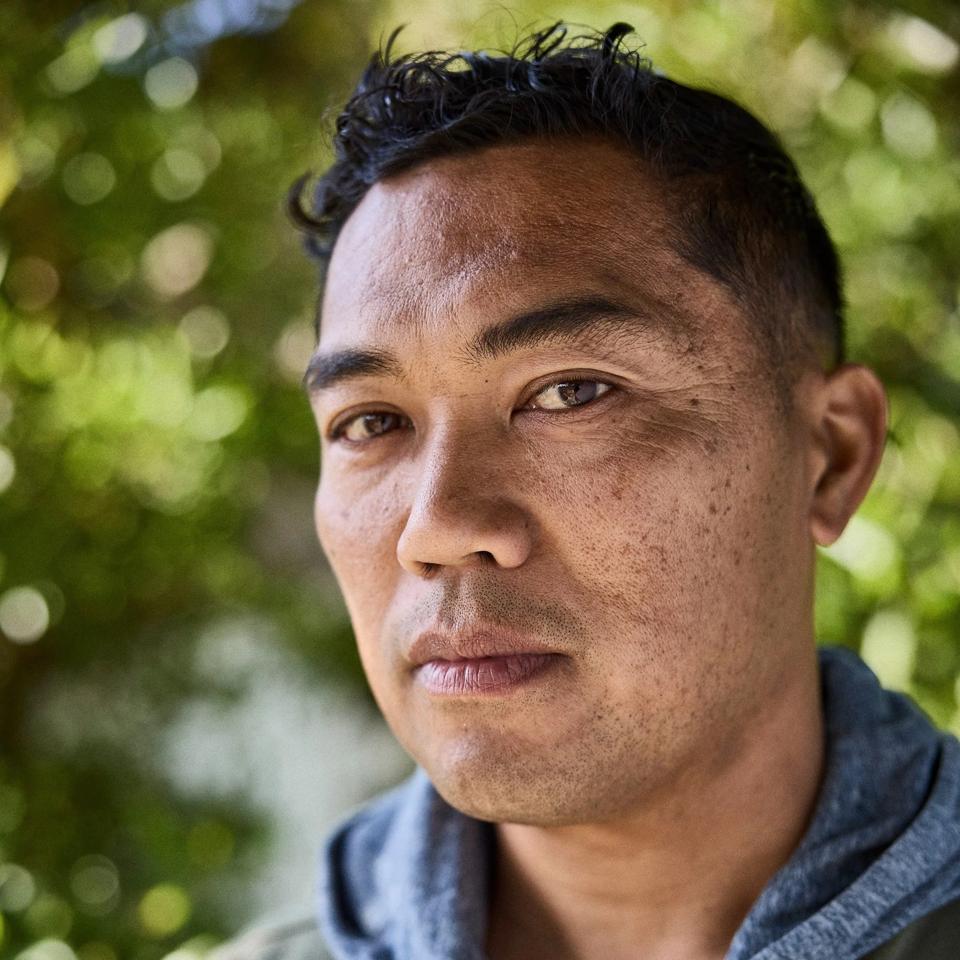What if an urban farm could outlast lifetimes—and help people rediscover their own nobility?
That question sits at the heart of ALMA Backyard Farms, the South Los Angeles nonprofit co-founded by husband and wife Richard Garcia and Erika Cuellar. On once-asphalted ground, they cultivate not just produce but peace. It is a place where people coming home from incarceration can rebuild skills and confidence, neighbors can find community, and families can reconnect with the land.
Garcia describes ALMA as a built environment for healing. Years before he was a farmer, he brought a violin into prisons to support contemplative retreats. In stark concrete rooms, he saw how music could create pockets of freedom and reflection. Farming, he suggests, extends that experience outdoors—turning soil and seasons into teachers. He says, “And I do believe that the urban farm is where the gospel meets the streets.” For him, food is the gathering point, “I think food could be a very dignifying thing.”
Why ALMA Resonates
Cuellar builds on that saying, “We’re living in a time when everything is available to us all the time—yet we still find ourselves longing for something more. What we crave most isn’t access or abundance, but connection, community, and compassion.”
She continued, “Alma means ‘soul’ in Spanish, and we believe the work we do at ALMA speaks to that deeper longing—the need to belong, to be seen, and to share in meaningful conversation. In a city where beauty can feel scarce, ALMA invites people to pause, take a deep breath, and remember their own dignity—and the dignity of one another.”
Walk the Compton site on a Sunday and the idea becomes tangible. The farm stand has become a ritual for people in the surrounding community and beyond. Garcia notes, “It’s become their Sunday thing, you know? Like a mental health intervention.”
From Reentry To Renewal
ALMA’s workforce includes people coming home from incarceration. In the rows and in the workshop, the work is practical—planting, harvesting, building—but the deeper lesson is about trust and possibility. Teaching someone to safely use a circular saw or a miter saw is not only technical training; it is a vote of confidence that they can build again. Garcia explains, “The real lesson is in trust, that I trust them to build again.”
Hands once seen as a threat become creative instruments—capable of craftsmanship, care, and contribution.
Those layered outcomes—jobs, mental health, belonging—rarely fit into a single impact metric. Pounds harvested and meals served matter, but the stories carry equal weight. Garcia observes, “We preserve the reality that story could be medicine, and story is told.”
Land That Remembers
Garcia and Cuellar are candid about the toughest challenge: permanence. Urban farms often sit at the mercy of leases and development cycles. ALMA is working to secure land so the community can count on it for generations. Garcia frames the ambition clearly, “If there was an urban farm in a place like Compton that could exist for hundreds of years, would the people here then have an opportunity to recognize their own nobility?” Soil, in that sense, is memory—and sovereignty.
Social Innovations On Wheels
To expand access and create more meaningful work, ALMA is developing mobile “trailers” that can carry farm-to-table food, flowers, or preserved goods directly into neighborhoods—especially where on-site distribution is restricted. Garcia says, “I do believe that we have, we have an opportunity to create kind of satellite operations.” The goal is twofold: bring the farm to people and incubate micro-enterprises that graduates can one day run themselves.
He also points to the power of place in regeneration, “Say, for instance, this was a neighborhood where I used to get high or I used to tag on walls. Now I’m in the same neighborhood planting seeds.”
A Simple Invitation
Alma is now looking for brand partners who are mission-aligned. On any given day, the team relies on sturdy, no-nonsense gear—Felco pruners in hand, Danner boots underfoot. Brands occasionally step in with support, but the bigger opportunity is partnership with values-aligned companies who see ALMA not as a backdrop but as a co-creator. The nonprofit’s model touches food systems, reentry, and community health—three arenas where thoughtful organizations can help scale impact responsibly.
ALMA’s work is purpose in action, grounded in humility and built on community. It shows how creativity can be a force for transformation—not in theory, but in rows of greens and the hands that grow them. If you’re in Los Angeles, visit the farm stand and experience the ritual for yourself. If you’re farther away, learn more, lend support, or explore partnership opportunities that honor the dignity at the center of this work.
The Future They’re Cultivating
Cuellar says, “For ALMA, our plans look beyond us — toward a future where people and plants can exist in true harmony. We hope to nurture places where generations can continue to gather, grow, and rediscover their dignity alongside the land. That’s the future we’re cultivating.”
That future is already visible in small ways: a child who now knows the scent of tomato leaves; a trainee who measures twice, cuts once, and smiles at the fit; a Sunday regular who finds calm among basil starts and sunflowers. Garcia sums up the ethos, “I think some people will say we’re crazy, but we internally acknowledge that that’s what we’re doing – to feed the soul.”
Explore ALMA Backyard Farms at almabackyardfarms.com.

